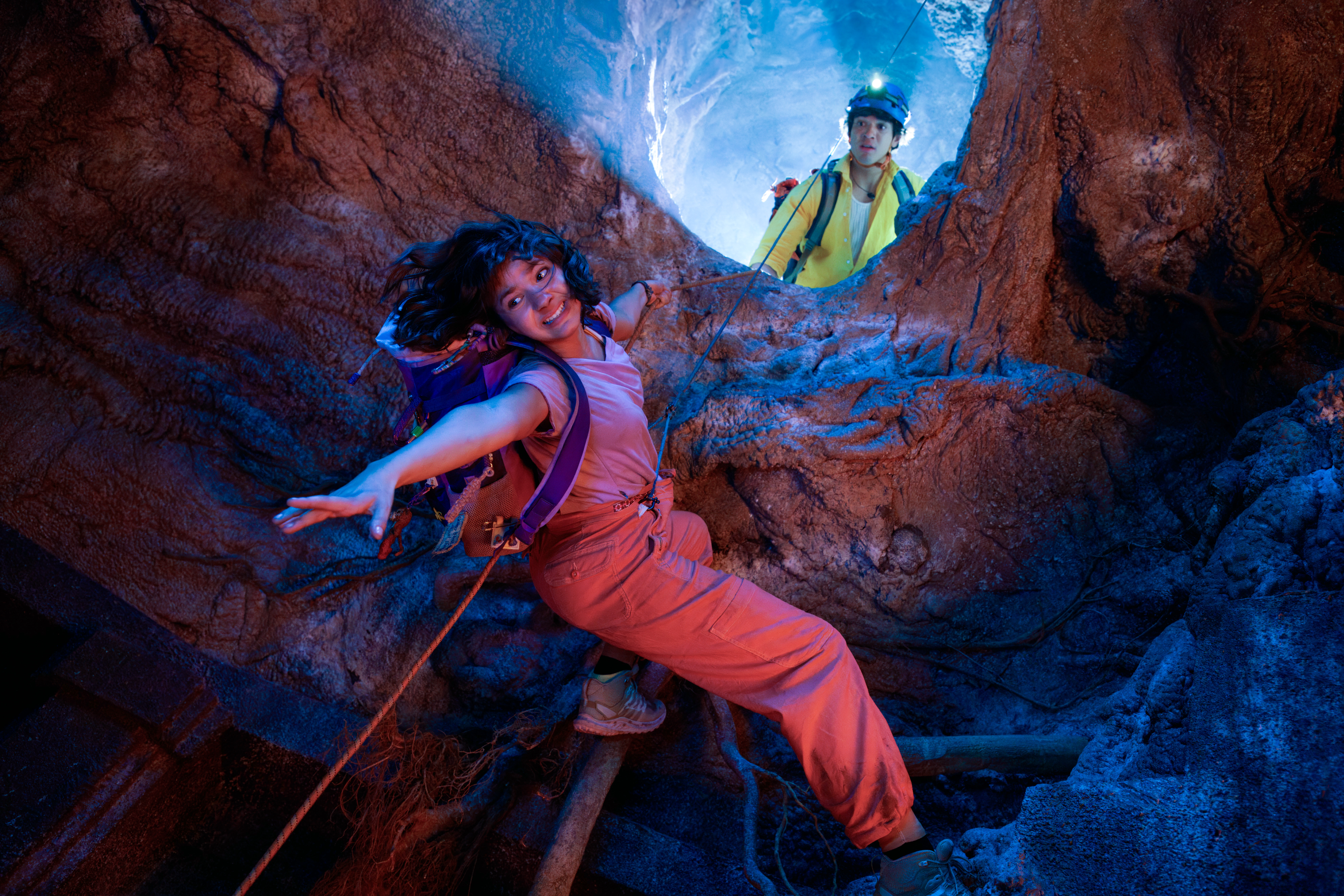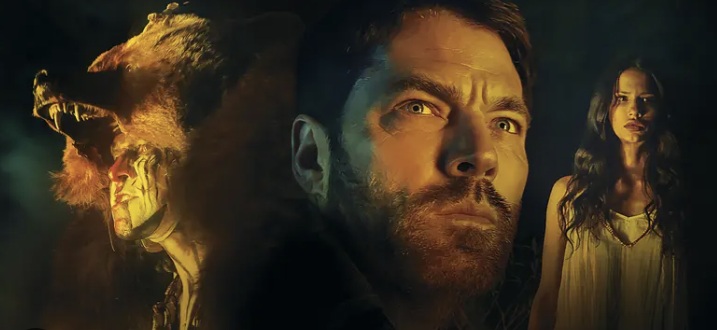
The Show Notes
In the latest edition of Los Fanboys, Jammer and David ponder the next Tarantino film. What will it be about, and how will Tarantino’s influences be treated? We delve into the year 1969 and speculate what it could mean for this movie.
From there, we dive into this week’s move, including: the box office, Fox moving the dates of three Marvel movies, Bride of Frankenstein gaining momentum, Edge of Tomorrow 2, Star Wars: The Last Jedi’s failure in China, the Black Widow movie, and a few new film synopses from films like Solo: A Star Wars Story, Avengers: Infinity War, and Ralph Breaks the Internet: Wreck-It Ralph 2.
SHOW GUIDE:
00:00:00 – Tarantino’s next: what could it be?
00:23:00 – Box office
00:31:30 – Fox shuffles Marvel movie dates
00:37:40 – Bride of Frankenstein starts up again
00:45:35 – Edge of Tomorrow 2
00:50:50 – Black Widow movie
00:56:15 – Synopses for Solo: A Star Wars Story, Avengers: Infinity War, and Wreck-It Ralph 2
The Editorial
Quentin Tarantino has threatened to retire from movie-making after his next two films. Maybe. Things change. What we know for sure is that Tarantino’s next film (working title: 1969) will be set in the actual year of 1969, focusing on the Hollywood movie industry, amidst the backdrop of the Manson Family murders, San Francisco’s summer of love, and all of the massive changes occurring within American society, government, and culture at the time. Whew, that’s a lot to cram into one film, but we trust in Tarantino’s vision and his commitment to everything he makes.
But what sort of film should we expect? When we talk about Tarantino’s work, we tend to focus on his style or his desire to shock or his eccentricities, but we seldom get into his inspirations or his motivations. So, we thought it might be an interesting discussion to explore why the year 1969 is so compelling to Tarantino and how it’s informing this project.
Related – Leonardo DiCaprio Officially Joins Tarantino’s Manson Movie
Taken as a whole, Tarantino’s movies have consistently focused on the seedier corners of American culture: drugs, crime, corruption, racism, violence. His stories have been fictional, but many were set in relatively specific timeframes and touched actual moments of history: Old West, Civil War, WWII, the 90s. However, the clearest thread between all of his films is this undeniable vibe that feels like 60s and 70s independent and art house cinema. Every Tarantino film feels birthed from that era, which incidentally coincides with his own childhood and early movie influences.
All of these factors combined make 1969 a damned interesting setting for a Tarantino film, particularly if it’s his last (or second to last): the connections between culture, his own formative years, and the fact that this is an era he has not yet explored. Additionally, while all of this stuff was going on, there were also massive shifts in tone and style occurring within Hollywood. It was a remarkable time in our history, and its where and when Tarantino was spawned.
Basically, the late 60s marked a massive shift away from the post-WWII norms and traditions in American society. People began questioning the government, raising concerns about corruption and pushing back against abuses of power. Add to this the Counterculture movement — mind-altering drugs, free love, and political protest — along with the horrors of the Vietnam war, Watergate, and the assassination of Martin Luther King Jr. Turbulent does not begin to describe the late 60s. Today we’re seeing the same kind of social, political, and economic upheaval — 1969 is really not that dissimilar from 2018.

You might be surprised to learn that the real world and all its woes often find their way into Tarantino’s films. He often embeds hidden meanings and messages into his films, relative to what’s happening in the real world. He analyzed the destructive power of white supremacy into The Hateful Eight, around the same time that policing and racism issues exploded in Baltimore and Ferguson. He related to Vulture:
“It was already in the script. It was already in the footage we shot. It just happens to be timely right now. We’re not trying to make it timely. It is timely. I love the fact that people are talking and dealing with the institutional racism that has existed in this country and been ignored. I feel like it’s another ’60s moment, where the people themselves had to expose how ugly they were before things could change.”
Tarantino combined his feelings about such serious contemporary issues with events and memories from his own past, which together informed the narrative in The Hateful Eight. But his inspirations actually go much further back, to when he was just a kid in Southern California. He was raised on a steady diet of Chinese martial arts movies, spaghetti westerns, blaxploitation films, and grindhouse-style horror while working at a video rental store in his teens — this is the core. He said this to Vulture:
“The ’70s — or the ’30s, depending on what you feel — is probably the greatest decade in cinema history, as far as Hollywood cinema is concerned.”
The late 60s witnessed an incredible change within Hollywood, as I mentioned earlier. The birth of the American auteur movement (or “New Wave”) occurred right about this time, with the rise of maverick filmmakers — Coppola, Lucas, Scorsese, Peckinpah, Hopper, and Spielberg — who burst onto the scene with films like Bonnie and Clyde, The Wild Bunch, Easy Rider, The French Connection, The Godfather. These auteur films shocked people, they were hyper-violent (for their time), and they challenged how films were made while also shining harsh lights on abuse of power in government, police, and our institutions.
Given all of these influences, it’s almost impossible to guess what Tarantino will give us in this new film. There’s some speculation that 1969 will be a non-linear tale, like Pulp Fiction. Given all of the disparate elements of Manson, Hollywood, and the Summer of Love that’s a reasonable possibility. However, Tarantino doesn’t always repeat himself — The Hateful Eight was essentially a stage play, Django Unchained was pretty linear, Kill Bill is kind of an anthology film. I suspect that it’s something else entirely, a film with this many personal connections could and should look different from anything else he’s done before. Perhaps 1969 is similar to Robert Altman’s M*A*S*H, another movie from this same era, which depicted the confusion and insanity of saving lives so they can be sent back to war — an allegory for Vietnam and endless war and all the things happening today too. My guess is as good as yours!

Ultimately, the chaos in American society, the auteur movement, and Tarantino’s own accumulation of film knowledge all appear to come together in 1969. Whether or not this is the movie you expected or desired from Tarantino is another topic entirely, however, it’s clear that he chose this particular timeframe because it represents something important to him. For example, what does Manson represent in Tarantino’s mind? Will he depict him realistically or will he mock him, similar to how Hitler was portrayed in Inglorious Basterds? This is one of many pieces of the puzzle he’s assembling. As with any new Tarantino film, it’s just exciting to imagine all the possibilities. If this is how Tarantino chooses to end his career, he’s certainly not going out quietly!
How do you feel about Tarantino’s exploration of 1969 and the Manson Family saga? Let us know in the comments down below!
1969 hits theaters on August 9, 2019.
Don’t forget to share this post on your Facebook wall and with your Twitter followers! Just hit the buttons on the top of this page.
SOURCE: Vulture

 FOR FANBOYS, BY FANBOYS
Have you checked out LRM Online’s official podcasts and videos on The Genreverse Podcast Network? Available on YouTube and all your favorite podcast apps, This multimedia empire includes The Daily CoG, Breaking Geek Radio: The Podcast, GeekScholars Movie News, Anime-Versal Review Podcast, and our Star Wars dedicated podcast The Cantina. Check it out by listening on all your favorite podcast apps, or watching on YouTube!
Subscribe on: Apple Podcasts | Spotify | SoundCloud | Stitcher | Google Play
FOR FANBOYS, BY FANBOYS
Have you checked out LRM Online’s official podcasts and videos on The Genreverse Podcast Network? Available on YouTube and all your favorite podcast apps, This multimedia empire includes The Daily CoG, Breaking Geek Radio: The Podcast, GeekScholars Movie News, Anime-Versal Review Podcast, and our Star Wars dedicated podcast The Cantina. Check it out by listening on all your favorite podcast apps, or watching on YouTube!
Subscribe on: Apple Podcasts | Spotify | SoundCloud | Stitcher | Google Play



